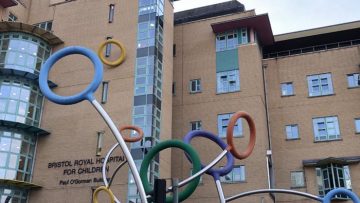The negative aspects of history have never seemed so important to so many. A statue of a merchant who profited from the slave trade was pushed into Bristol harbour, and a jury acquitted those involved of criminal damage. Edinburgh University renamed the former David Hume Tower, citing Hume’s ‘comments on matters of race’. University College London denamed buildings formerly named after statistics pioneers Francis Galton and Karl Pearson because of their work on eugenics. In view of his writings on race, Caius College Cambridge has taken down its stained-glass window depicting a Latin square which commemorated R.A. Fisher, and his name has also been removed from a building at Rothamsted Research and a prize offered by the Committee of Presidents of Statistical Societies. The former Cass Business School has been renamed over Cass’s links with slavery; it is now named after the mathematician Thomas Bayes. A statue of Thomas Guy at Guy’s Hospital in London is being moved: Guy’s wealth came from investments in the South Sea Company, which was heavily involved in the trading of slaves.
Statisticians have confronted their subject’s connections with the eugenics movement [1] but other mathematicians are now under the spotlight – for example a recent book investigates the connections of Newton and the early Royal Society with the slave trade [2]. (While Newton invested in the South Sea Company, it seems he did not profit from this investment, unlike Guy and Cass: does this change how we view him?)
More generally, many mathematical theorems and methods are named after those who created them, and some of these creators behaved in ways we now consider repugnant. Should we be comfortable honouring people whose words or actions are unacceptable by today’s standards? Or might we feel that, while we should not expect the mathematicians of the past to conform to today’s expectations, it is right to acknowledge their mathematical achievements while being aware that, like us all, their personalities and actions were flawed?
In teaching mathematics, one cannot help noticing that the mathematicians whose names are attached to the mathematics that students will meet do not reflect the diversity of today’s mathematical community. In a topical A Doctor Writes column in the February 2022 Mathematics Today [3], our Doctor wrote that they are not suggesting we drop or rename various mathematical results and methods named after ‘mathematicians who are almost exclusively European and white’. But, especially where these mathematicians have behaved appallingly, should we be using their names?
Naming a theorem after its originator may be a factual attribution rather than the celebration of the individual that is implied by giving someone’s name to a building or a prize. It certainly should not imply any endorsement of that person’s conduct beyond their mathematical work. Experience shows that we should not expect our heroes in one context to be role models in every aspect of their lives. Mathematicians, like any other groups of people, can behave badly in aspects of their public and private lives.
For example, Pearson’s correlation coefficient is an important tool, and arguably using the name does not in any way indicate admiration for Karl Pearson’s personal views or for his use of his statistical innovations to promote eugenics. Nevertheless, for someone who is aware that Pearson described people like themselves as ‘somewhat inferior physically and mentally to the native population’ [4, p. 126], using Pearson’s name to refer to mathematical results might be painful. A Black student might be reluctant to study by the Moore method, knowing that the name comes from a racist who refused to teach African-Americans (and was possibly also anti-Semitic and misogynistic). Should a subject like mathematics which aims to attract diverse practitioners be making some potential mathematical scientists feel uncomfortable and unwelcome?
It’s not just names of mathematical results that come directly from people that may be problematic. Some mathematical ideas are named for applications which don’t sit happily in the modern world. When I taught graph theory, I was never happy referring to a marriage theorem, often presented in a setting which offers a caricature of human relationships that, some years ago, was probably a perfectly acceptable joke, but which is less appropriate today. (When staff at an Australian university discouraged the use of ‘marriage theorem’ for this result, the negative response from some students was reported in the media [5].)
Some of the names given historically to mathematical results are inconsistent and Eurocentric. An example recently discussed on Twitter is a good illustration. Two fundamental results in number theory are Euclid’s algorithm and the Chinese remainder theorem. The former is named after Euclid (usually considered a Greek, although he worked in Africa) in whose book it appears. The latter is found in Sun-tzu’s book Sun-tzu Suan-ching. Neither is thought to have been discovered by the author. Why is Euclid’s name attached to one but not Sun-tzu’s to the other? The answer may have something to do with the idea that our tradition of mathematical proof derives from ancient Greece; a myth addressed by some historians [6].
Some are now calling the Chinese remainder theorem ‘Sun-tzu’s theorem’, addressing the inconsistency noted above. But there is a problem with renaming mathematical results. Even in this digital age, when sources are often easier to access than books and journals, textbooks and articles use the traditional names. If we refer to Sun-tzu’s theorem and someone looks it up, they may not find it because their book refers to the Chinese remainder theorem. Nevertheless, names do change over time, and using new names while offering pointers to the old will also raise awareness of the difficult history of some of our cherished mathematical ideas.
In an important and provocative article Aram Bingham has argued that we should name mathematical ideas for their content, not for their originators [7]. Would this help matters, or is it useful that we retain the historical reminders that our subject is a human endeavour with all the flaws that that entails?
There won’t be agreement on this issue, at least in the short term, but I think this topic is important for two reasons. One is that we want to encourage everybody to believe that mathematics is for them. If our subject is to continue to thrive, then we need every potential mathematician to feel welcome in our community [8]. If we appear to celebrate racists, misogynists, anti-Semites and others with offensive views, then there is a strong risk of people feeling that maths is unwelcoming, thus deterring them from pursuing their interest in the subject, and we will all be poorer as a result.
There is another reason. Mathematics has made a major contribution to tackling the current pandemic. Statistics has helped us understand the data and develop safe vaccines and medication, while modelling has helped us take precautions. Our subject has never been more important, quite literally helping save many lives. Yet the pandemic has increased distrust in some quarters towards scientists, including mathematicians, as is shown, for example, by the postings of a small but vocal minority on social media. A discipline which does not acknowledge flawed aspects of its past is not well placed to regain that trust from those parts of the community which have suspicions about its value and the motives of its practitioners.
So I believe that it is important for the future of our subject that we think about, and discuss, its past. Is it now time to move away from the tradition of naming mathematical ideas after people? Should we dename some results of the past? Or should we, at the very least, use these names to promote discussion of how our subject has moved on, showing our awareness of the negative aspects of its history and our desire to work towards a thriving, diverse mathematical community? There are no easy answers, but the issue is important for us all.
Tony Mann FIMA
University of Greenwich
This is an opinion piece and the views and opinions expressed do not necessarily reflect those of the IMA, the MT Editorial Board, or the University of Greenwich.
References
- Langkjær-Bain, R. (2019) The troubling legacy of Francis Galton, Signif., vol. 16, pp. 16–21.
- Fara, P. (2021) Life After Gravity: Isaac Newton’s London Career, Oxford University Press, Oxford.
- Anonymous (2022) A Doctor Writes …, Math. Today, vol. 58, no. 1, pp. 3–4.
- Pearson, K. and Moul, M. (1925) Problem of alien immigration, Part II, Ann. Eugen., vol. 1, no. 2, pp. 56–127.
- Morgan, R. (2017) UNSW lecturer discouraged use of the term ‘marriage’ in mathematics theorem, SBS News.
- Chemla, K. (ed.) (2012) The History of Mathematical Proof in Ancient Traditions, Cambridge University Press, Cambridge.
- Bingham, A. (2020) The history is the history, AMS Graduate Student Blog.
- Bradshaw, N. and Mann, T. (2021) Welcoming students to the mathematics community: obstacles to ‘belonging’, MSOR Connections, vol. 19, no 2.
Reproduced from Mathematics Today, April 2022
Download the article, Mathematical Results – do names matter? (pdf)



